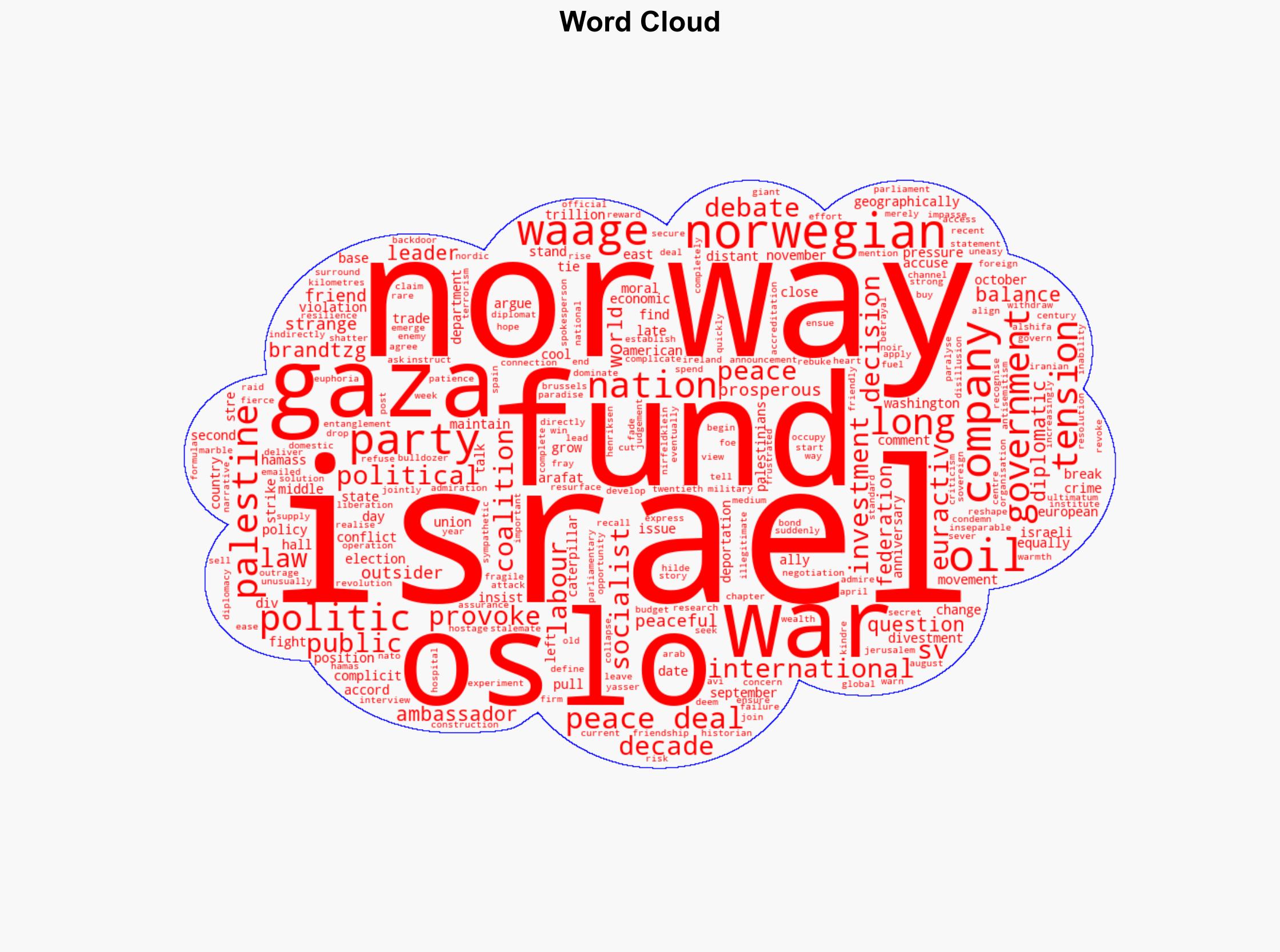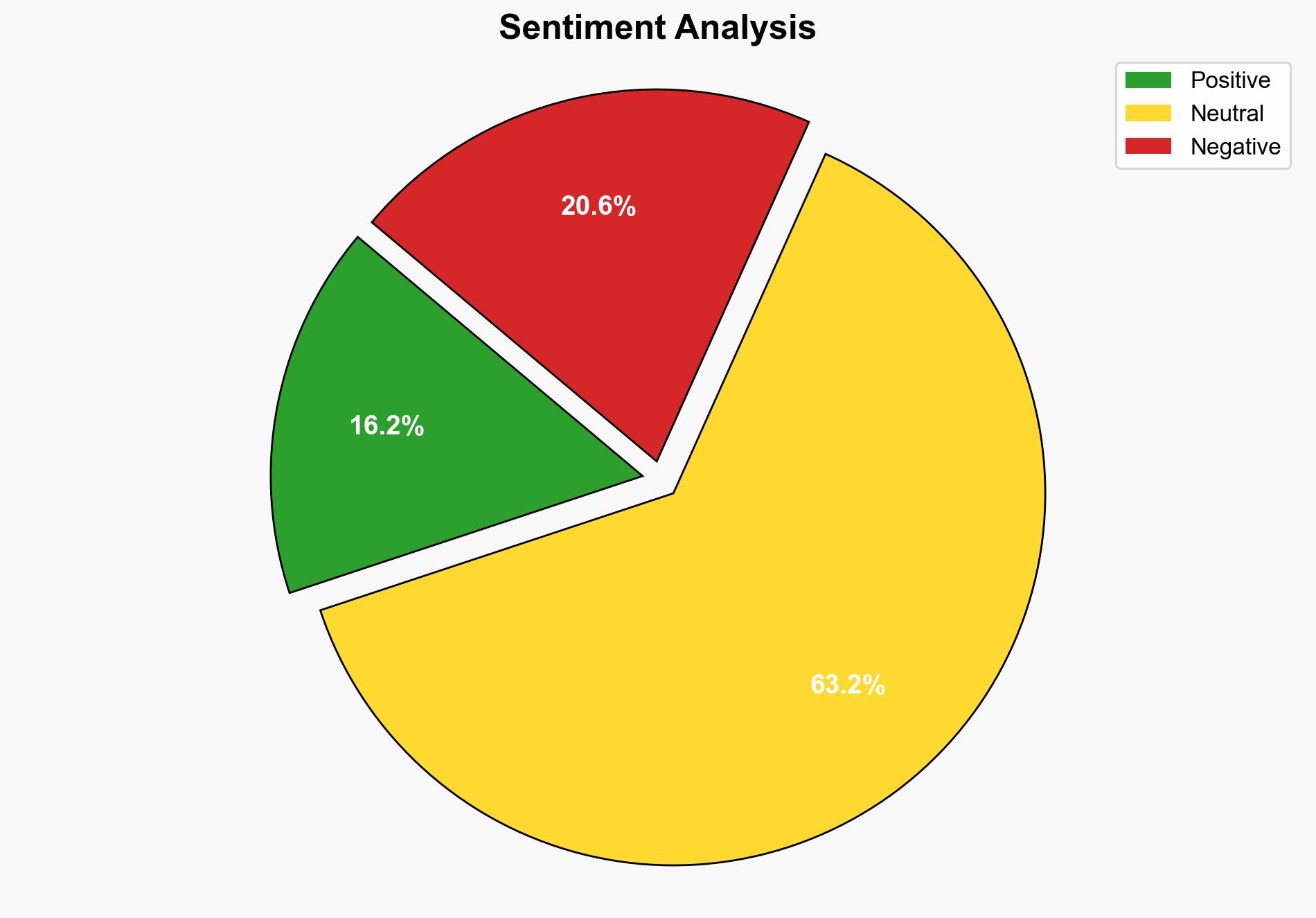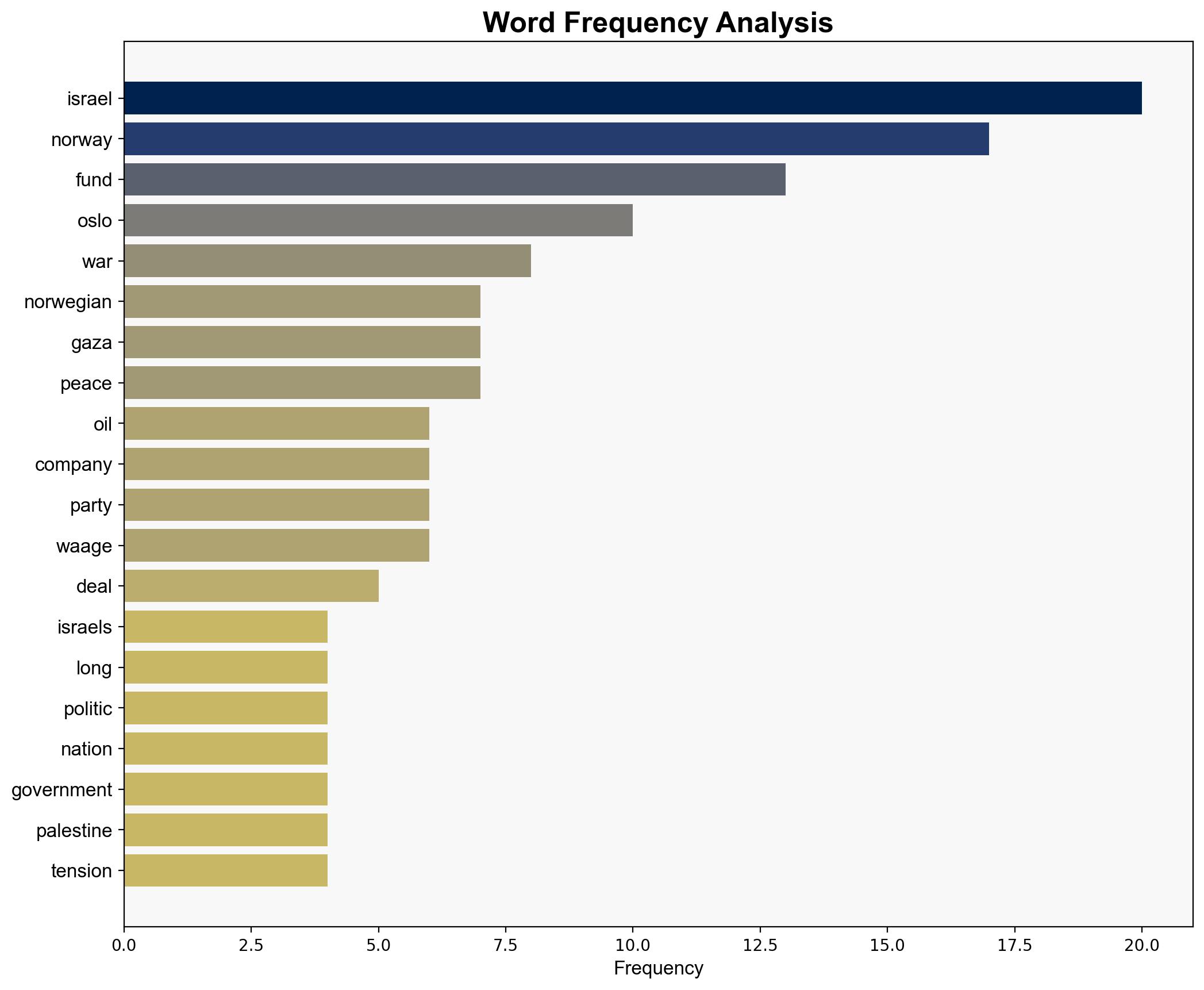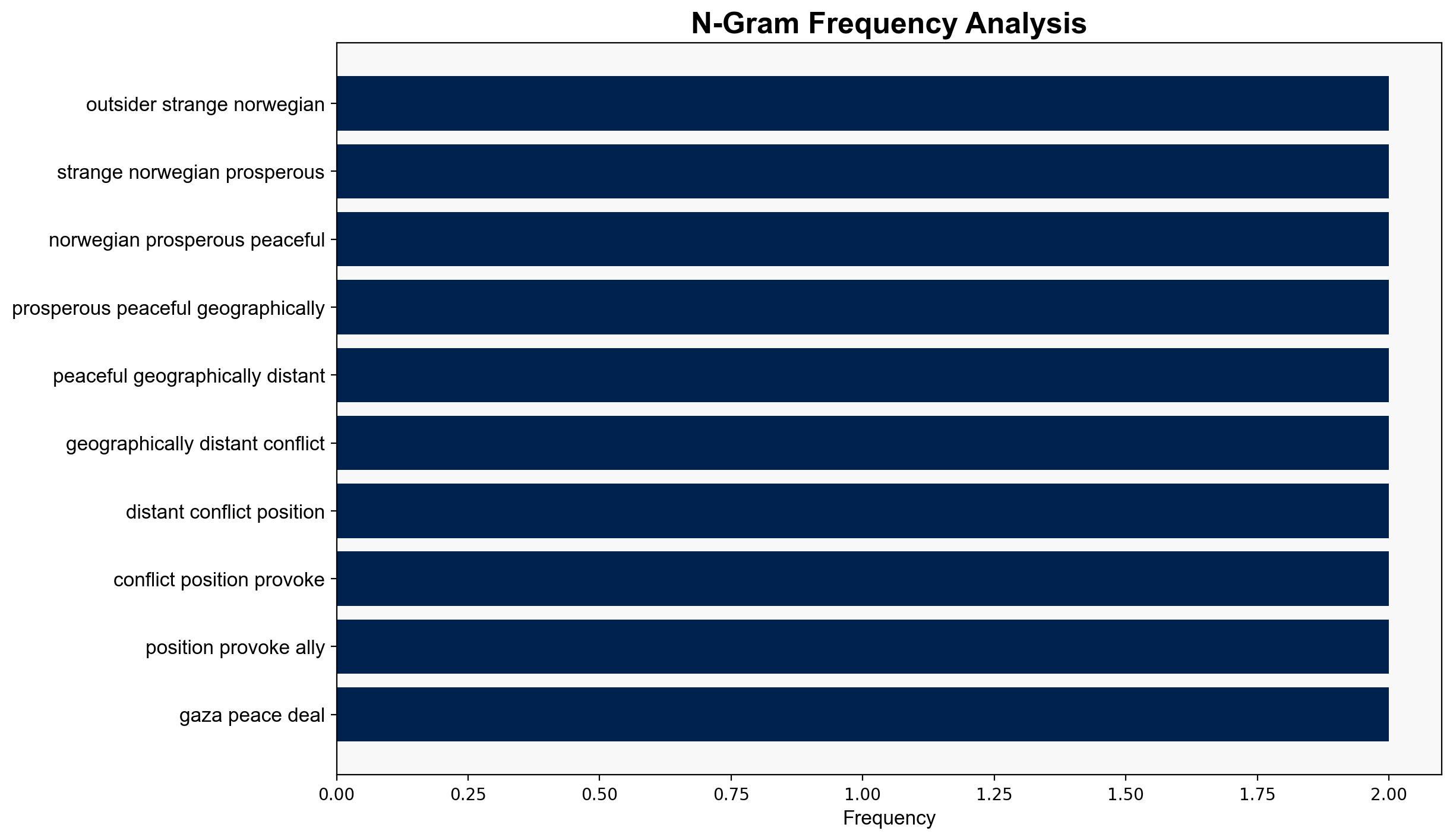Nordic noir How Norway went from Israels friend to its foe – EURACTIV
Published on: 2025-10-21
Intelligence Report: Nordic noir How Norway went from Israels friend to its foe – EURACTIV
1. BLUF (Bottom Line Up Front)
Norway’s shift from ally to adversary of Israel is primarily driven by domestic political dynamics and evolving foreign policy priorities. The most supported hypothesis is that Norway’s actions are influenced by internal political pressures and a strategic realignment towards a more balanced Middle Eastern policy. Confidence level: Moderate. Recommended action: Monitor Norway’s political landscape and diplomatic engagements for further shifts in policy.
2. Competing Hypotheses
1. **Domestic Political Pressure Hypothesis**: Norway’s shift is primarily due to internal political pressures, particularly from the Socialist Left Party, which influences coalition dynamics and policy decisions, such as the divestment from companies linked to Israeli military operations.
2. **Strategic Realignment Hypothesis**: Norway is strategically realigning its foreign policy to adopt a more balanced stance in the Middle East, driven by a desire to enhance its global moral standing and influence peace processes, as evidenced by its historical involvement in the Oslo Accords.
Using ACH 2.0, the Domestic Political Pressure Hypothesis is better supported due to the immediate impact of coalition politics and public opinion on policy decisions, such as the sovereign wealth fund’s divestment actions.
3. Key Assumptions and Red Flags
– Assumptions: The analysis assumes that Norway’s political landscape is stable enough to allow the Socialist Left Party significant influence. It also assumes that Norway’s foreign policy is primarily driven by moral considerations.
– Red Flags: Potential cognitive bias includes overestimating the influence of a single political party. There is a lack of detailed information on Norway’s broader strategic objectives in the Middle East.
4. Implications and Strategic Risks
Norway’s policy shift could strain its relations with traditional allies like the United States, which has expressed concern over the divestment decision. This could lead to economic repercussions if diplomatic tensions escalate. Additionally, Norway’s actions may embolden other countries to adopt similar stances, potentially altering the geopolitical balance in the region.
5. Recommendations and Outlook
- Monitor Norway’s domestic political developments and coalition dynamics to anticipate further policy shifts.
- Engage in diplomatic dialogues to mitigate potential tensions with allies and explore collaborative peace initiatives in the Middle East.
- Scenario Projections:
- Best: Norway successfully mediates new peace talks, enhancing its international standing.
- Worst: Diplomatic fallout with key allies leads to economic and political isolation.
- Most Likely: Norway maintains a balanced approach, facing periodic diplomatic challenges.
6. Key Individuals and Entities
– Socialist Left Party (SV)
– Caterpillar
– Yasser Arafat
– Hilde Henriksen Waage
7. Thematic Tags
national security threats, geopolitical strategy, Middle East diplomacy, international relations




